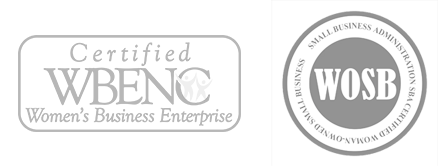EVEN THOUGH you will need to identify your prospect’s needs before you make a successful sale, your knowledge won’t mean much if your relationship with the prospect isn’t built on trust. Smart buyers are generally willing to consider the guidance of salespeople, but only if trust has been established first. Once a prospect trusts the seller, the first — and arguably hardest — step to success is out of the way. How do you build trust with a prospect? First, prove that you are trustworthy. How can you show that you are accountable, credible and authentic? Good listening skills can go a long way. Make sure that you are dependable, too. Buyers want to know that you mean what you say. Don’t promise buyers the moon, only to fall short. Prove that you’re competent by being an expert. Be bold, but don’t just sell the hype. Big slogans and proclamations are nice, but if there isn’t substance, you will undermine any trust you’ve built. Of course, salespeople are in the business of shining the best possible light on a service, so most prospects have learned to be skeptical. Sellers have to be able to answer to that skepticism, so they have to know every aspect of their products or services. Don’t be caught off guard by questions about your product or your competition. You also need to be knowledgeable about your prospect’s business, his competitors and the marketplace, the needs of his customers, and how your product can help address those needs. Be able to identify the return on investment for buying your product. You should be prepared with concrete examples of results and client testimonials, which show a track record of integrity. Demonstrate your integrity by showing the customer you have his best interests at heart, even if that means sending him to a competitor when what you are offering isn’t quite right at that time. Taking a selfless approach could drive future business and referrals more than anything you can say. Unless you have already built a relationship with the prospect, most new buyers have no reason to trust you. They don’t know you, and they aren’t familiar with how you have helped others find success. Get personal with your prospects by letting them into your world, and showing them what matters to you. Help your prospects understand there is a real person behind the products or services you are selling. Don’t take trust for granted. Even after you have built a basic foundation of trust, you need to keep building trust in each of your early conversations before you can cross the bridge that leads to a solid, long-standing partnership.
Recent Posts
- Optimization vs. Testing: Do You Know the Difference?
- Friction Points in the Customer Journey You Can’t See Without Objectivity
- Fear of Raising the Bar: The Hidden Obstacle Blocking Predictable Growth
- Why Differentiation, Not Imitation, Drives Market Share
- How to Build a Culture That Chooses Data Over Assumptions
Related Posts
 Marketing StrategyOtherSales
Marketing StrategyOtherSales
One Team, One Dream
TEAMWORK: every highly successful team gets just how important it is to propelling an organization…
RedRover Sales & MarketingApril 23, 2024
 Marketing StrategyOtherSales
Marketing StrategyOtherSales
Marking Your Territory
I BET you didn’t think your dog could teach you anything about marketing. I’ve learned…
RedRover Sales & MarketingApril 23, 2024
 OtherSales
OtherSales
The Brain Bone’s Attached to the Wallet Bone
LOOKING AT YOUR BRAIN Neuromarketers can predict how you’ll respond to advertising. While it may…
RedRover Sales & MarketingApril 23, 2024




